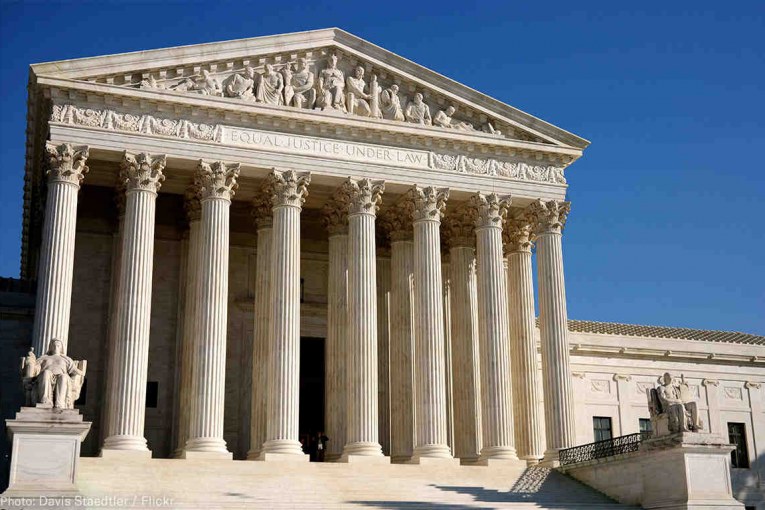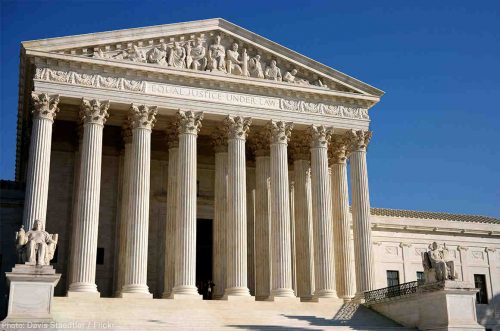

By Elina Sadeghian
WASHINGTON, DC – The U.S. Supreme Court is being asked, in United States v. Hansen, to rule courts cannot negate a defense claim that Helaman Hansen’s felony conviction for allegedly encouraging a non-citizen to stay in the U.S. unlawfully violated the U.S. Constitution.
Hansen was charged with encouraging two non-U.S. citizens to reside in the U.S. after their visas had expired, violating a federal law that prohibits encouraging an immigrant to remain in the U.S. unlawfully.
The Federal Defender’s Office for the Eastern District of California and the American Civil Liberties Union filed a brief on behalf of Hansen, appealing to the U.S Supreme Court to hold the federal law making it a felony to encourage noncitizens to reside in the U.S. unlawfully violates the First Amendment.
According to the ACLU, last year, the Ninth Circuit Court of Appeals ruled the encouragement provision is unconstitutional because it prohibits a substantial amount of constitutionally protected speech.
This prohibition of all “encouragement’ would mean any expressions of concern or any given advice to the undocumented immigrant that is deemed as potentially influential to their stay within the United States would be deemed as a crime, said the ACLU
This federal law also criminalizes the encouragement of conduct, such as residing in the U.S. without a valid visa, said the ACLU.
“The encouragement provision criminalizes protected speech,” said Carolyn Wiggin, Assistant Federal Defender and counsel of record for Hansen.
Wiggin added, “Contrary to the government’s argument, encouraging a person to overstay their visa is not a crime because overstaying a visa is not a crime. The government is trying to punish speech about an activity more harshly than it punishes the activity itself.”
Esha Bhandari, deputy director of the ACLU Speech, Privacy, and Technology Project, argued, “The Supreme Court should not expand the category of speech that can be criminalized to include speech that merely encourages conduct that is not a crime.”
Bhandari added, “The encouragement provision chills a large amount of constitutionally protected, everyday speech to and about the tens of millions of noncitizens in the country. To permit the government to make speech a crime when it does not even encourage criminal activity would be unprecedented.”